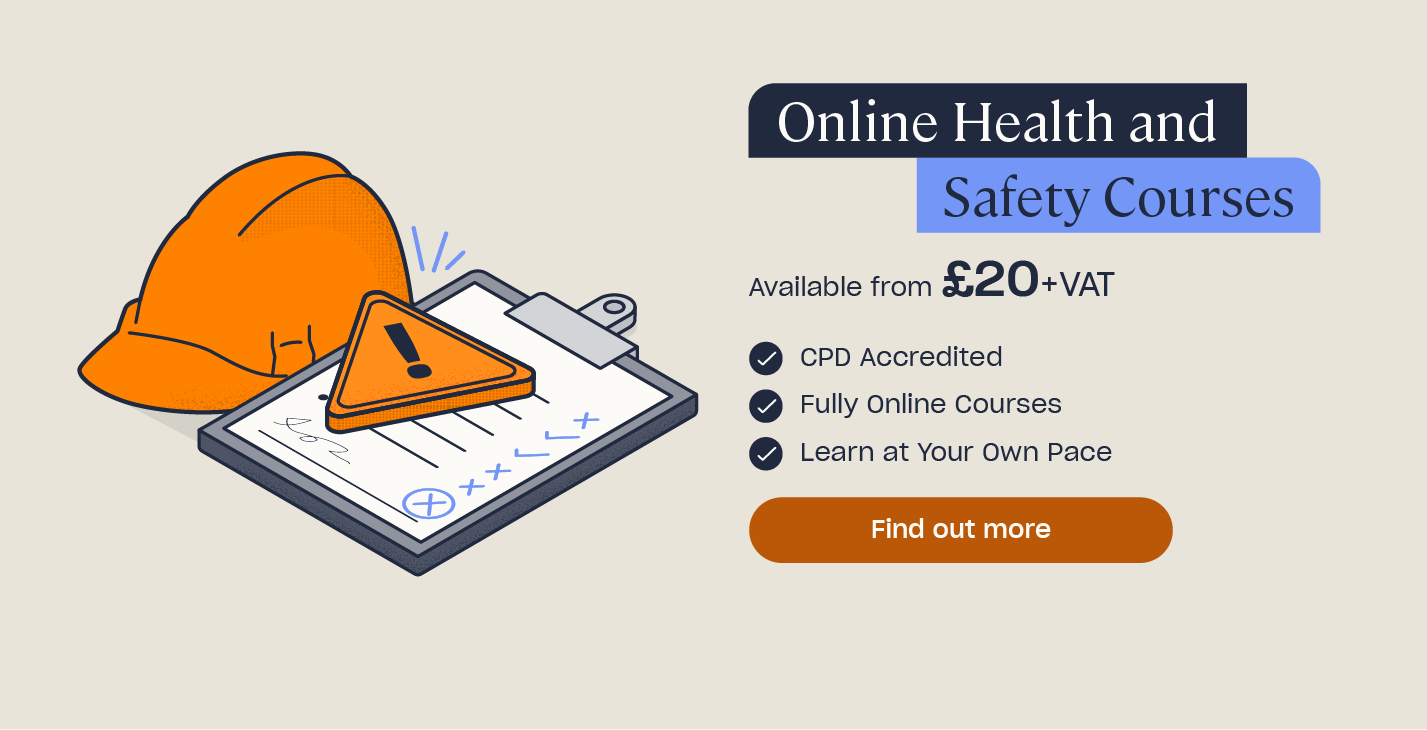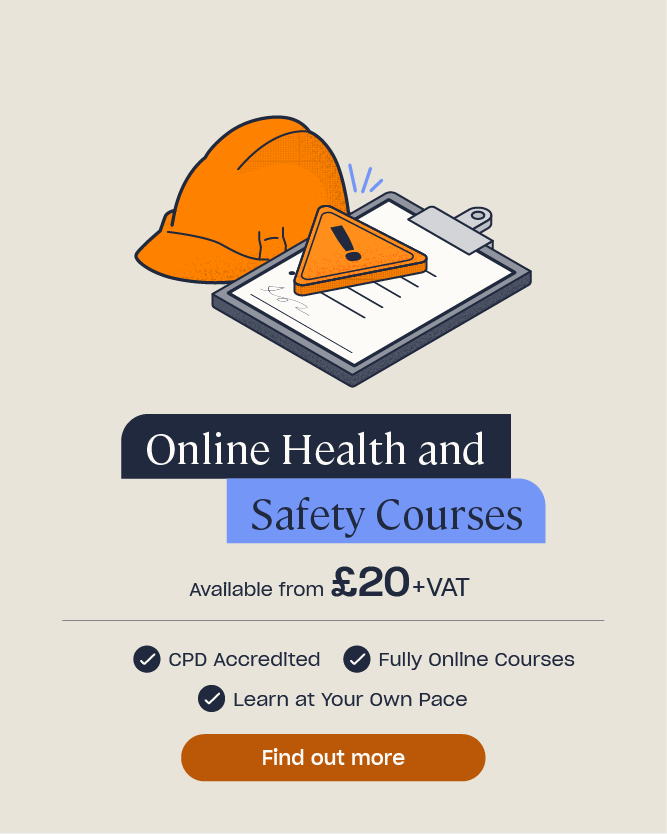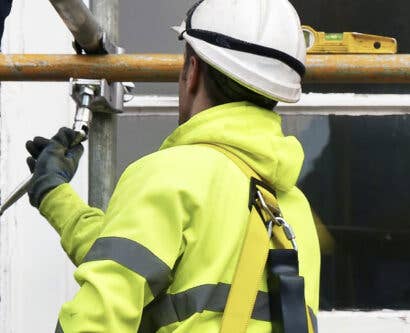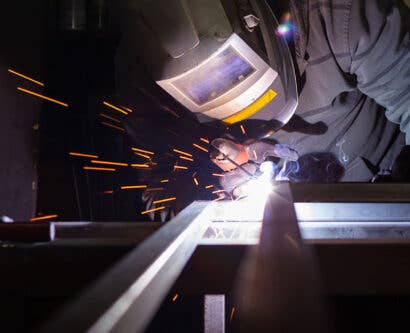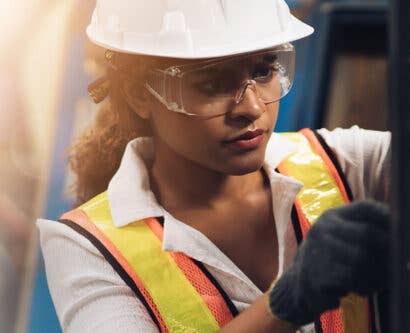How to Become a Plumber
Plumbing is a lucrative trade that could see you earning big. In the UK, good plumbers are always in demand and the need for qualified plumbers to work in private homes and with construction firms continues to rise. This is largely because plumbers are an ageing population: many existing plumbers qualified 40+ years ago and the younger generation has neglected to follow in their footsteps. If you’re looking to become a plumber yourself, then this article will provide you with everything you need to know, including what a plumber does, the skills and qualifications you need to become a plumber and how to go about securing a job in the industry.
Asbestos Awareness Training
Working as a plumber means there is the possibility of disturbing ACMs (Asbestos-Containing Materials) in the course of your work. Our Asbestos Awareness Course gives you the tools to go about your work safely and shows what to do if asbestos is encountered.
What Does a Plumber Do?
A plumber is someone who instals, repairs and maintains water and heating systems in buildings. This might include installing new pipework, servicing old heating systems, finding and fixing faults, connecting dishwashers and washing machines and installing new toilets, baths and sinks.
Plumbing has the possibility of being a green job – a role that has a positive, direct impact on the environment. This is particularly important as we enter the future of work, where eco-credentials are becoming more and more desirable by customers and clients.
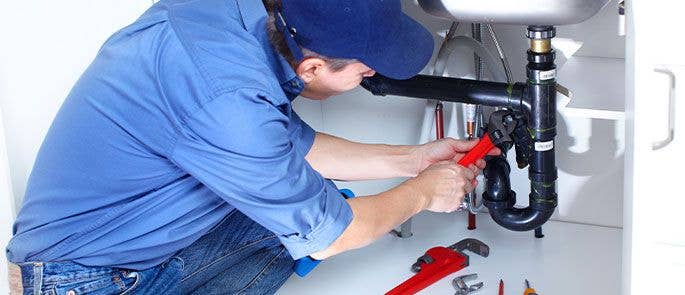
Plumbers work in a variety of buildings, including domestic properties for private clients, in commercial premises, in office buildings and on construction sites. You might be working 9 to 5 for an employer, be self-employed and set your own hours or work out of hours on emergency call-outs. Many plumbers work alone and have to travel regularly to and from private clients’ homes. You’re also likely to be required to work in small spaces, at height or outside from time to time.
Key tasks a plumber does include:
- Installing toilets, sinks, baths and showers.
- Installing and repairing water, heating and drainage systems.
- Installing central heating systems and fuel-burning appliances using gas, oil or solid fuel.
- Installing hot and cold water, sanitation and drainage systems.
- installing pipes and related fixtures.
- Installing solar-powered hot water systems.
- Cutting, shaping, assembling and joining pipes, fittings and fixtures.
- Fitting heat pumps in domestic households.
- Fitting weatherproof materials and flashings to roofs, chimneys and walls.
- Repairing appliances connected to plumbing systems.
- Replacing old copper piping with new, recyclable components.
- Servicing gas and oil-fired central heating systems and radiators.
- Setting up rainwater harvesters.
- Responding to emergency call-outs, like broken boilers, flooding or blocked drains.
- Troubleshooting issues and recommending solutions.
- Using special testing equipment to diagnose issues.
- Providing estimates of repairs.
- Interpreting blueprints of new installations.
- Designing new water and heating systems.
- Ensuring all work is done in compliance with regulations and codes.
What Qualifications Do You Need to Be a Plumber?
To become a plumber, you’ll need some sort of plumbing qualification, training or work experience, as well as an enthusiasm for the role. Different employers have different entry requirements, so take a look at plumber job listings to see what they ask for and also explore which training option best suits you.
As someone new to plumbing, you’re likely to start at an apprentice level. With qualifications and experience, however, you can progress through the levels to become a journeyperson or master, and have the potential of earning up to (or even more than) £60,000 per year.

The qualification options for becoming a plumber include:
Plumbing College Courses
A college course will give you both theoretical and practical plumbing knowledge, with a certificate at the end that you can use to find a trainee position in a company. Examples of relevant plumbing college courses are a Level 2 or 3 Diploma in Plumbing and Domestic Heating or a T Level in Building Services Engineering for Construction. For most college courses, you’ll need at least 4 GCSEs at grades 9 to 4 (A* to C), or equivalent, including English and maths.
Plumbing Apprenticeships
An apprenticeship in plumbing allows you to work and earn money alongside your training. Normally, you’re expected to work at least 30 hours a week, doing both on-the-job work and college lessons. Examples of relevant plumbing apprenticeships are Plumbing and Domestic Heating Technician, Building Services Engineering, Gas Engineering Operative or Low Carbon Heating Technician. For more advanced level apprenticeships, you’ll need at least 5 GCSEs at grades 9 to 4 (A* to C), or equivalent, including English and maths.
Fast Track Plumber Courses
A fast track course in plumbing enables you to train as a plumber more quickly than doing an apprenticeship. The training given isn’t usually as in-depth but covers the main topics and is recommended if you’re unable to find an apprenticeship. An example of a fast track plumbing course is the City and Guilds Level 2 Diploma in Plumbing Studies, which takes just 8-10 weeks to complete.
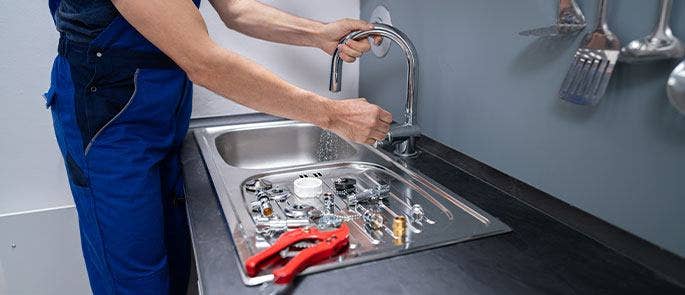
Plumbing Work Experience
Work experience is usually voluntary and often unpaid but it enables you to get some vital hands-on experience of the plumbing profession. You could do some work as a Plumber’s Assistant or Plumber’s Mate for a small wage whilst you gain valuable training from an experienced person in the industry. To work as a Plumber’s Mate, you’ll need at least two GCSEs in English and maths.
Other Plumbing-Related Certifications
If you plan to work on domestic gas heating systems, including gas fireplaces, gas hobs and gas boilers, then you’ll need to be on the Gas Safe Register. To work or train as a plumber on a construction site,you’ll also need a valid Construction Skills Certification Scheme (CSCS) card. If you want to go down this career path, then consider the time and costs associated with obtaining a card, as it can take some time.
Plumber Health and Safety Awareness Training
A good plumber prioritises safety and knows how to carry out the role whilst following all health and safety procedures, regulations and codes. Being able to follow regulations and having a good knowledge of plumbing safety measures will help you immensely when applying for a job role as a plumber for a large company.
High Speed Training has a wide range of health and safety awareness training that’s ideal for both new and experienced plumbers. All the courses can be completed online, giving you a certificate to show employers at the end. Some of the awareness level courses on offer include:
- Health and Safety Training for Employees
- Working in Confined Spaces
- Ladder Safety
- Asbestos Awareness (Category A)
- Manual Handling Awareness
You can access our full catalogue of online health and safety training courses here.
What Skills Do You Need to Be a Plumber?
As well as being able to carry out practical plumbing tasks, like fitting pipes, installing water systems and fixing boilers (your ‘hard skills’), plumbers also need a range of other interpersonal skills to be successful. These types of plumbing skills are known as ‘soft skills’ and are an important part of the role if you want to be a highly-recommended plumber.

Examples of plumber soft skills are:
- Initiative and proactivity.
- Ability to use, repair and maintain machines and tools.
- Ability to work efficiently alone and/or with a team.
- Being thorough with a good attention to detail.
- Customer service skills.
- Communication skills.
- Knowledge of the building and construction industry as a whole.
- Knowledge of maths.
- Good level of dexterity and fitness.
- Physical strength and stamina.
- Basic computer skills.
How to Get a Job as a Plumber
In the UK, plumbers are in high demand as many of the existing qualified plumbers are reaching retirement age and exiting the workforce. Not only does this mean there’s a shortage of plumbers available to work, but it also provides a great opportunity for new trainee plumbers to enter the industry.
If you’re new to plumbing, then take a look at the UK government’s apprenticeships near you or courses near you websites to find some initial plumbing training. You can then use the find a job service to look for permanent plumbing roles.
It’s a good idea to join the Chartered Institute of Plumbing and Heating Engineering (CIPHE) to keep up-to-date with industry news, code changes and professional development opportunities. Being a member also looks good on your CV when you come to apply for a plumbing role within a company. If you need help writing your first CV as a plumber, then take a look at our guidance on How to Write Your First CV
You can also take a look at our guide on careers in the construction industry to explore other job options that you may be interested in alongside plumbing.
Once you’ve gained some experience and knowledge of working as a plumber, the career development opportunities are many. With experience, you could:
- Do further training in a specialist topic to become a heat pump engineer, oil firing technician or gas heating installer.
- Develop your eco-credentials by focusing on and learning more about renewable energy sources for heating.
- Become a master plumber, mentor trainee plumbers or teach in further education.
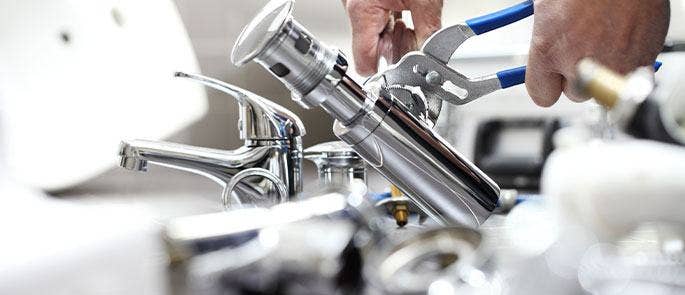
To become a plumber, you’ll need to undertake relevant work experience or training to ensure you have both the hard and soft skills needed to perform the role successfully. Plumbers are always in demand in the UK, so pursuing plumbing as a career could be a lucrative opportunity, whether you choose to work in domestic properties or for a large construction firm.
Further Resources:
- Online Health and Safety Courses
- How to Become a Construction Worker
- How to Find the Right Career
- Asbestos Colours: What is the Most Dangerous Asbestos Colour?
- How to Become an Engineer


